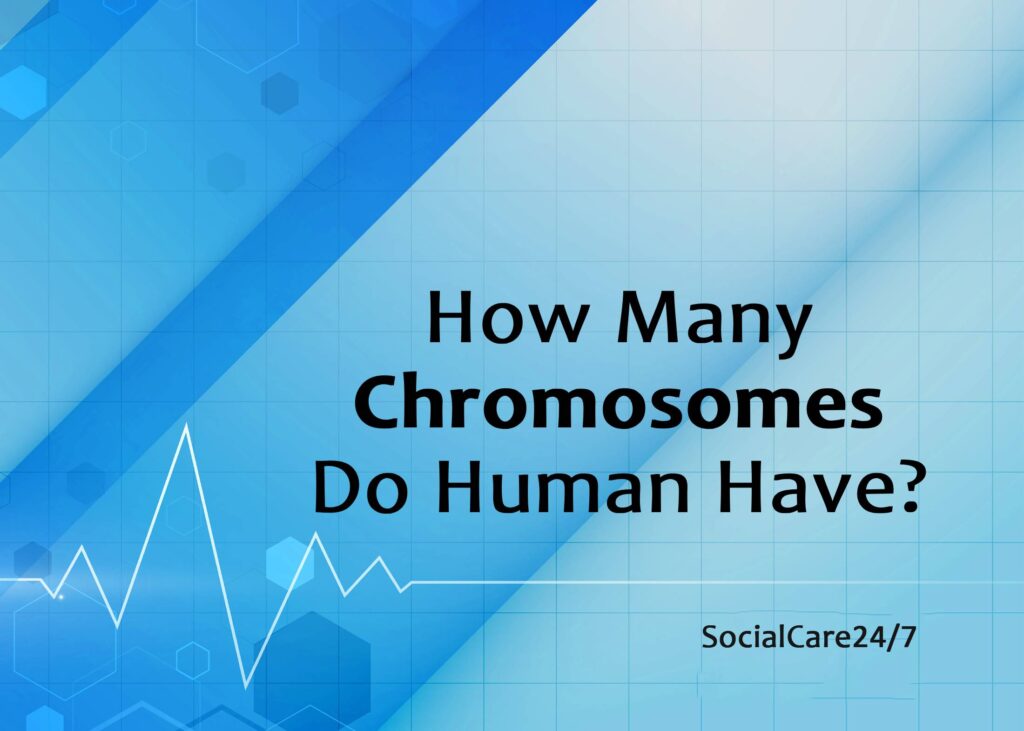Chromosomes, small thread-like structures inside cells, form our genes. They influence everything from our appearance to our resilience. The major carriers of DNA and chromosomes contain life’s instructions. So, how many chromosomes do autistic humans have? Humans have 46 chromosomes in 23 pairs, a unique configuration. Chromosomes are more than appearances; they design our lives.
Why do we have so many chromosomes, and how do they vary between species and autistic patients? This article addresses these concerns, including intriguing analogies with orangutans and key gender differences.
What are Chromosomes and why are they important?
Chromosomes, tiny thread-like structures, are in every cell. Proteins—particularly histones—keep DNA securely wrapped. This small group of cells protects and manages genetic material during cell division.
The genetic instructions in our chromosomes affect everything from eye colour and height to organs and cells. DNA has four nucleotide bases, A, T, G, and C. Its structure is double helix. A with T and G with C form the steps of a spiral tower that contains life instructions.
If untangled, the DNA in each cell is over six feet long, making it impossible to organize without chromosomes. Chromosomes organize DNA replication and spread during cell division, preventing genetic alterations and diseases attributable to errors.
People have how many Chromosomes?
With 23 pairs, humans have 46 chromosomes. Two autosomes are among these 22 pairs. These genes regulate metabolism, eye colour, and skin structure. The 23rd pair of chromosomes determines a person’s sex.
Many people want to know how many chromosomes does a female have? The answer is that female also have 46. More women have two X chromosomes than men. These chromosomes show physical sex and carry genes that regulate metabolism and immunity.
This chromosomal pattern is common in everyone, but genetic illnesses can produce differences. People with Down syndrome have 47 chromosomes because chromosomes 21 is duplicated. This variation highlights how crucial chromosomes are for health and growth.
How many Chromosomes Women have?
Most women have 46 chromosomes, two of which are X. This double-X form is essential for development and reproduction.
X-inactivation randomly disables one of each cell’s two X chromosomes. Only girls have this. These steps reduce X chromosomal gene overgrowth. A Barr body forms when the dormant X chromosome squeezes together. Men have one X chromosome; thus, gene expression is equal between genders.
Both X chromosomes in women contain genes that affect colour vision, defence, and blood coagulation. Changes in these genes can induce haemophilia or colour blindness. Because men have one X chromosome, these diseases are more common.
How many Chromosomes are there in Autism?
Autism is a neurodevelopmental condition with 46 chromosomes, like everyone else. However, gene alterations can increase autism risk.
People with autism spectrum disorder (ASD) may have additional or reduced copies of chromosomes 15 or 16. These changes can influence gene production, brain growth, and nerve cell connections.
Autism does not result from chromosomal imbalance. Minor chromosome genetic sequence variations cause autism. This disparity illustrates how intricate genetics may be in neurological issues. Some people must want to know how many chromosomes do orangutans have? So, the answer is 48.
How many Chromosomes do Orangutans have?
With 48 chromosomes in 24 pairs, orangutans developed much like humans did. However, chromosomal numbers have changed slightly during the past few million years.
One of the most intriguing genetic findings is that the chromosomes of orangutans and other great apes may have joined to form human chromosome 2. Scientists believe this fusion gave humans 46 chromosomes during development.
Despite their differences, humans and orangutans share 97% of their DNA. This displays species’ genetic similarity. These parallels help scientists understand evolution and the genetics of human and primate features.
Chromosomal Mutations
Mutations can occur in chromosomes, which are generally stable. You can inherit or gain these alterations, which increase genetic diversity and health risks.
You inherit genetic defects from your parents in every cell. Mutations impact eye, hair, and illness risk. If a gene that breaks down lactose changes, the whole family may not be able to manage it.
Acquisition mutations occur later in life. Environmental factors, such as UV radiation, smoking, and DNA replication errors during cell division, cause them. Although these modifications don’t affect the number of chromosomes, they can cause cancer by affecting key genes.
Reproduction alters chromosomes. Meiosis errors can cause embryos with too few chromosomes, and people often miscarry because of these issues.
What makes Chromosomes more than numbers?
How many genes an organism has does not determine its complexity. A carp has 104 chromosomes, a black mulberry 308, and a person 46. These numbers show historical evolution, not biology’s complexity.
The exact arrangement of genes and non-coding DNA sequences in chromosomes matters. Genes instruct an organism’s behaviour and adaptation to its environment.
Reproduction also depends on chromosomes. Chromosomes are meticulously separated and reassembled when cells divide into sperm and egg cells, ensuring each child has distinct genes. Variation drives evolution and allows organisms to survive for generations.
Conclusion
Chromosomes build life, not just carry genetic information. 46 human chromosomes store our unique instructions. These instructions affect our abilities, attributes, and health. Chromosomes make us human. How many chromosomes do autistic humans have? Orangutans have how many chromosomes? Females have how many chromosomes?
These thread-like structures arrange DNA and preserve Earth’s diversity. From explaining our relationship to orangutans to why people are different, chromosomes demonstrate biology’s beauty and complexity.
Source Links:
https://medlineplus.gov/genetics/understanding/basics/howmanychromosomes
https://www.geneticsdigest.com/how-many-chromosomes-do-humans-have/



